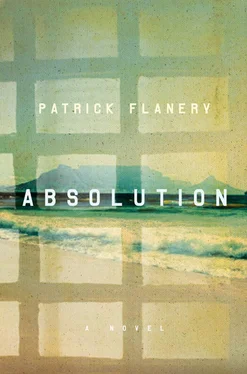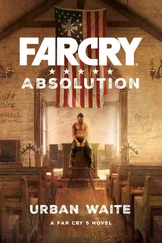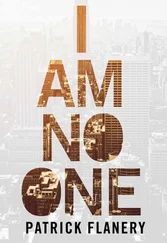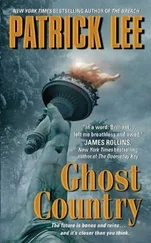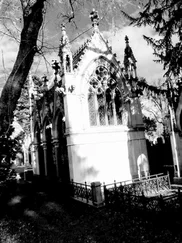‘No. My paternal grandfather was an ostrich farmer. The other was a butcher.’
‘And your parents?’
‘My father was a lawyer, an advocate. The first in his family to go to university. My mother was a linguist, an academic. I never saw much of them. There were women — girls — to look after me. A succession of them. I believe my father did a fair amount of pro Deo work.’
‘Did that inform your own political stance?’
She sighs and looks disappointed, as though I’ve missed a joke.
‘I don’t have a political stance. I’m not political. My parents were liberals. It was to be expected that I would also be a liberal, but I think my parents were “liberals” in the reluctant way of so many of their generation. Better we should speak of left-wing and right-wing, or progressive and regressive, or even opp ressive. I am not an absolutist. Political orientation is an ellipse, not a continuum. Go far enough in one direction and you end up more or less in the place where you started. But this is politics. Politics is not the subject at hand is it?’
‘Not necessarily. But is it difficult, do you find, to engage in a critique of the government, as a writer?’
She coughs and clears her throat. ‘No, certainly not.’
‘What I mean is, does being a writer make it more difficult to criticize the government?’
‘More difficult than what?’
‘Than if you were a private citizen, for instance.’
‘But I am a private citizen, as you put it. In my experience, governments mostly take very little notice of what private citizens have to say, unless they say it in unison.’
‘I guess what I’m trying to ask—’
‘Then ask it.’
‘What I’m trying to ask is whether you think it’s more difficult to criticize the current government?’
‘Certainly not. Just because it’s democratically elected doesn’t grant it immunity from criticism.’
‘Do you think that fiction is essential to political opposition?’ I regret the question as soon as it’s out, but sitting in front of her all the carefully formulated questions I’ve spent months preparing seem impossible to ask.
She laughs and the laugh turns into another fit of coughing and throat-clearing. ‘You have a very strange idea of what fiction is meant to do.’
I stall for time, feeling her stare at me as I study my maze of notes. I naively assumed it would all go so smoothly. I decide to ask her about the sister; there’s no denying the importance of politics there. As I’m trying to frame the question in my head, she clears her throat again, as if to say, Come along, you must do better , and I rush into another question I didn’t mean to ask.
‘Did you have any siblings?’
‘You know this, Mr Leroux. It was the climax of a turbulent period. It’s a matter of public record. But I absolutely will not talk about my sister.’
‘Not even the bare facts?’
‘The known facts of the case are on file in the court records and countless press clippings. No doubt you’ve read them. Everyone has read them. A man acting alone, he said. The court found that he was not acting alone, though no one else was arrested. Like so many others, he died in police custody. Unlike so many others, he had actually committed a crime — at least he never denied doing it. I can add nothing else except the experience of the victimized family and that is not new material. We all know how people suffer over the unexpected, violent death of a family member. It is fundamentally no different for the family of a murdered innocent or the family of an executed criminal. It is vivisection. It is limb loss. No prosthetic can substitute. The family is crippled. That is all I wish to say.’
*
Though it’s only supposed to be our second meeting, Clare can’t or won’t see me today. Instead I go to the Western Cape Archives, park on Roeland Street, and nod at the car guard who’s sheltering in the shade of a truck. He gives me a subservient smile and makes some kind of sound of assent. I find myself always on edge, expecting the worst. At the airport I was a foreigner, but a week later, in the market yesterday, I was already a local again. Over a display of lettuces, a woman addressed me, expecting a reply. A decade ago I might have come up with the right words. I had to shake my head. I smiled and apologized, explaining that I didn’t speak the language, didn’t understand. Ek is jammer. Ek praat nie Afrikaans nie. Ek verstaan jou nie . I’ve lost too much of my Afrikaans to be able to answer. I didn’t know what to say about the lettuce or the fish, the vis . She looked surprised, then shrugged and walked away, mumbling sharply, assuming perhaps that I knew but was refusing to speak her language.
The Archives have been housed on the site of a former prison for nearly twenty years. The car guard watches as I walk up the steps and through the green grille of the old gate in the nineteenth-century outer wall. Inside there are shabby picnic tables and plantings, and the new structure, a building within a building. I sign the register, put my bag in a locker, and carry my equipment to the reading room. The woman behind the desk, a Mrs Stewart, is uncertain at first what it is I want. She looks vaguely alarmed when she understands, but nods and asks me to take a seat while she sends someone to look for the files. All her sentences rise at the end, in a tone that questions everything without questioning directly. A few years ago, the staff might have let me do my own digging in the stacks — friends had such luck, finding things they weren’t supposed to find. Now everything is more organized and more professional, but also a little less hopeful.
The other people in the room all appear to be amateur genealogists working on family histories. When the stack of brown folders with bold red stamps appears on my table I feel the others staring, wondering what kind of files I might be consulting, no longer confidential but still bearing that mark. I take out my camera and tripod and photograph page after page throughout the morning.
At lunchtime, two women from the reading room approach me in the lobby.
‘Are you working on family history?’ one of them asks, her voice rising like Mrs Stewart’s.
‘No. It’s for a book. I’m looking at the files of the Publications Control Board. The censors.’
‘Ohhh,’ the other one says, nodding. ‘How verrrry interesting.’
We talk for a few moments. I ask about their research. They are sisters, investigating their ancestors, trying to track down the right Hermanus Stephanus or Gertruida Magdalena over centuries of people with the same names.
‘Good luck with your researches,’ the first one says as we part on the steps. ‘I hope you find what it is you are looking for.’
I give the car guard what I think is proper. It always seems like too little or too much. Later, I ask Greg what he thinks. I trust his opinion because I’ve known him since we were students in New York, and because he’s the most morally and socially engaged friend I still have in the country. When I told him I was coming back, and that my wife would be joining me later in the year to take up her new assignment in Johannesburg, Greg insisted I stay with him for as long as I needed to be in Cape Town.
‘It can never be too much because they need it more than you,’ he says, balancing his son on his knee. ‘Just like if your hire car gets stolen or somebody takes the radio or the hubcaps — you have to tell yourself, whoever took it needs it more. It’s the only way to live with yourself.’
‘I don’t ever want it to look like charity.’
‘Think of all the fuckers who only give them fifty cents and can’t be bothered. Money isn’t an insult. There’s nothing wrong with charity. Not everything has to be payment for services rendered, however informally. And if you’re a tourist you owe them a little more.’
Читать дальше
